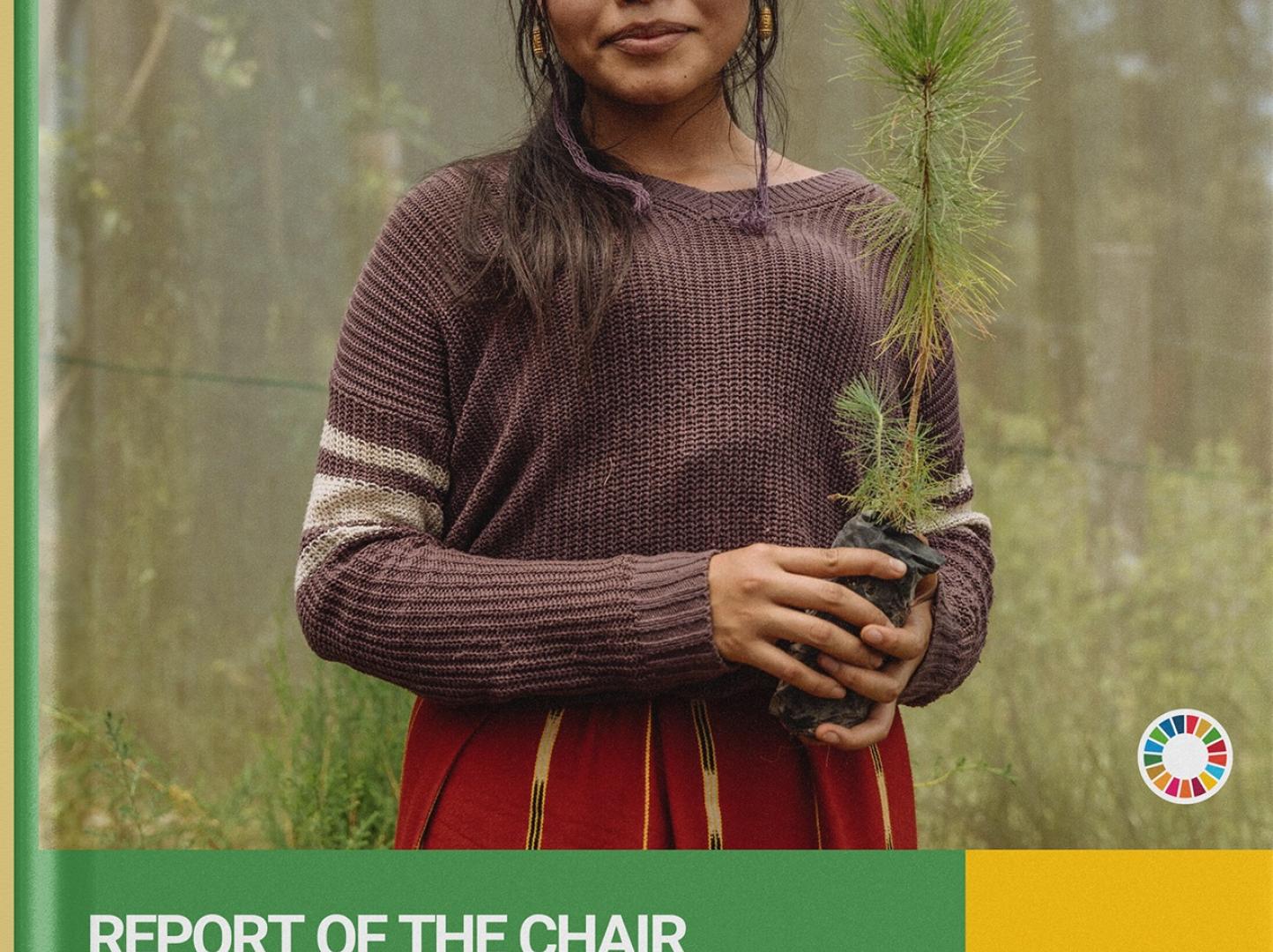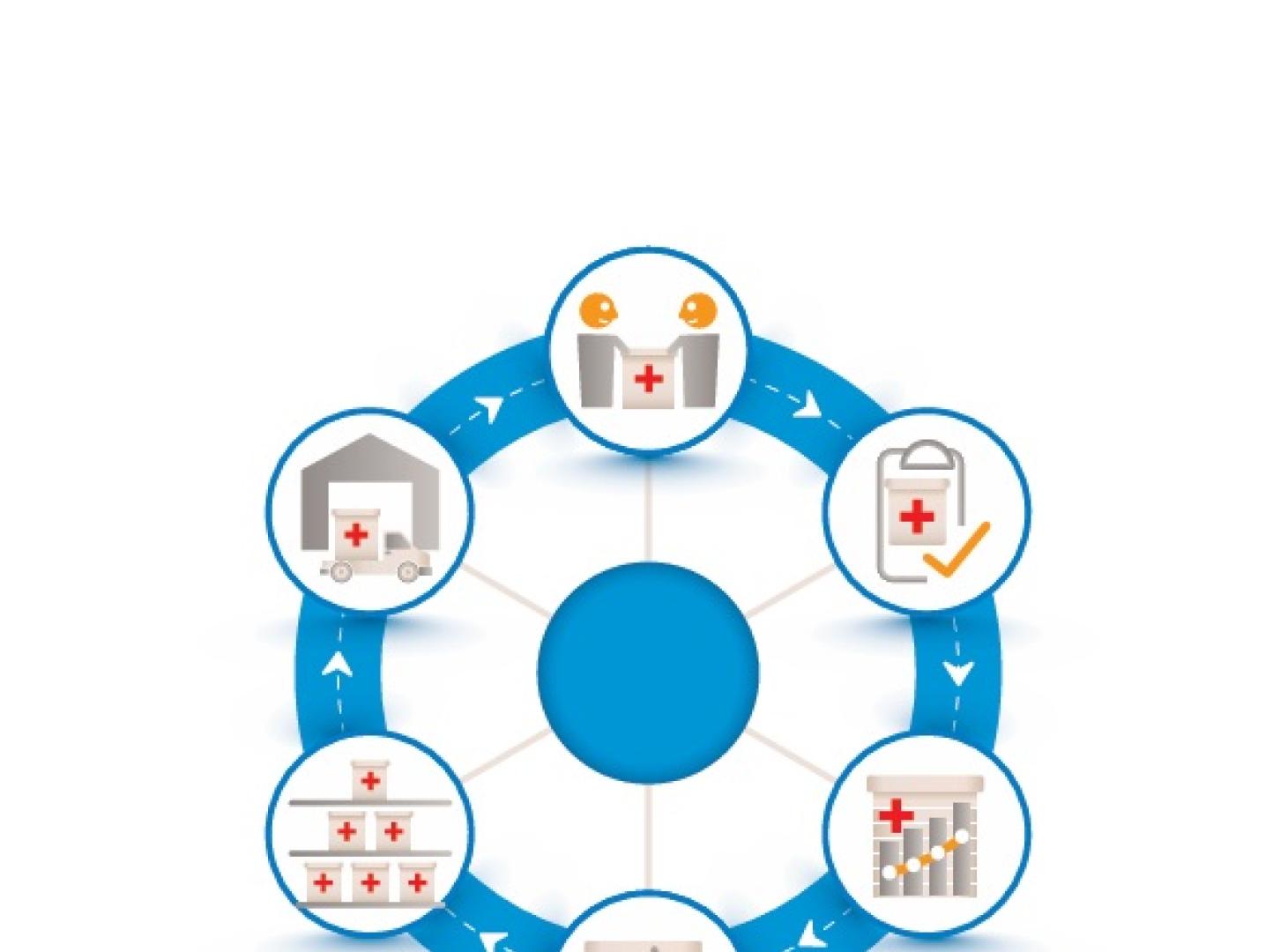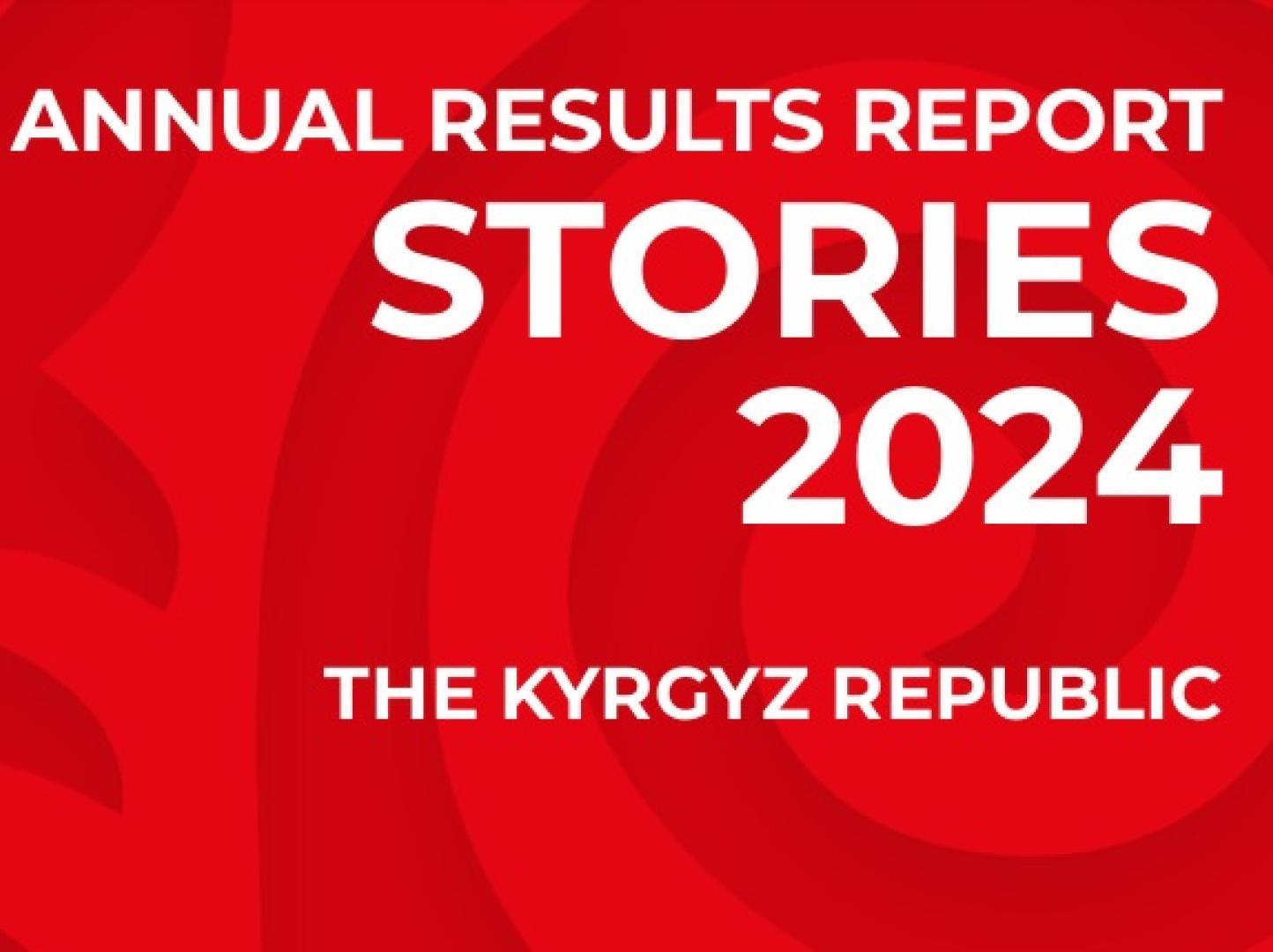How the PLHIV communities respond to the COVID-19 pandemic
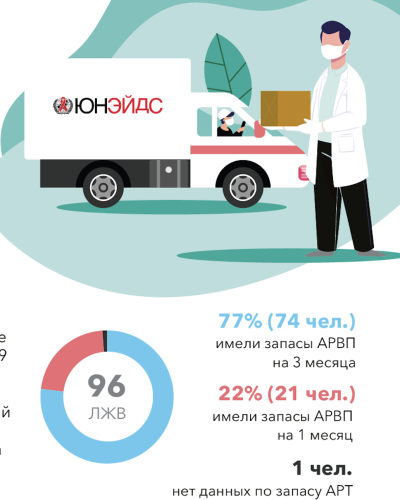
Results of the rapid assessment
In April 2020 the UNAIDS office in the Kyrgyz Republic conducted a rapid assessment of needs of people living with HIV in the time of the pandemic. The results of the assessment demonstrated that many community members need psychological support and self-help groups, while some of these people are experiencing economic hardship and lack means of subsistence.
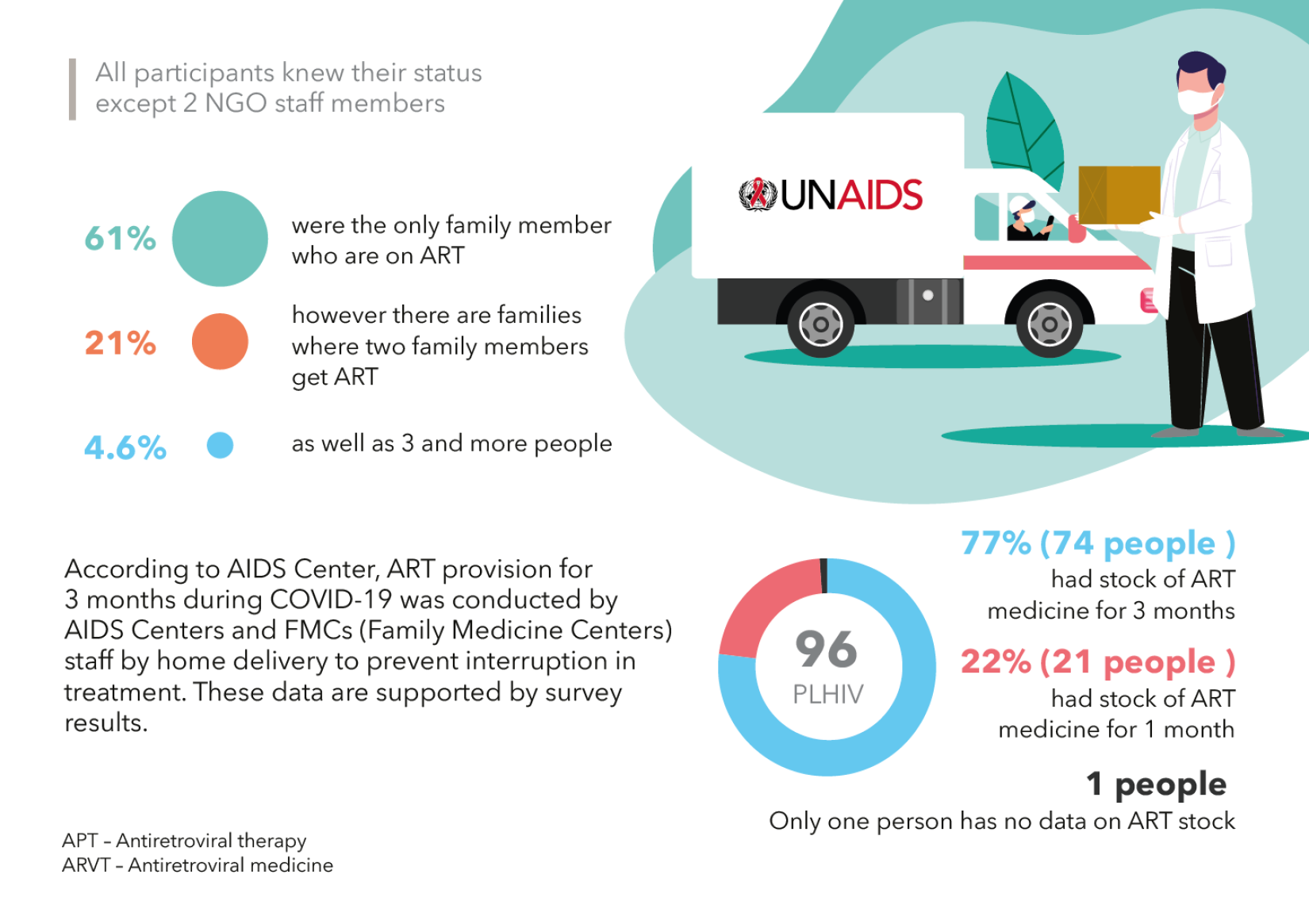
In the light of the COVID-19 pandemic the greatest concern for respondents is their own health and the health of their families. The quarantine measures limit the availability of medical services, of which the most in demand are services of dentists and gynecologists while some people were not able to apply for a routine viral load check-up. The loss of earnings produced particular impact, exacerbating social problems, especially for large and disadvantaged families as well as those who do not have their own homes.
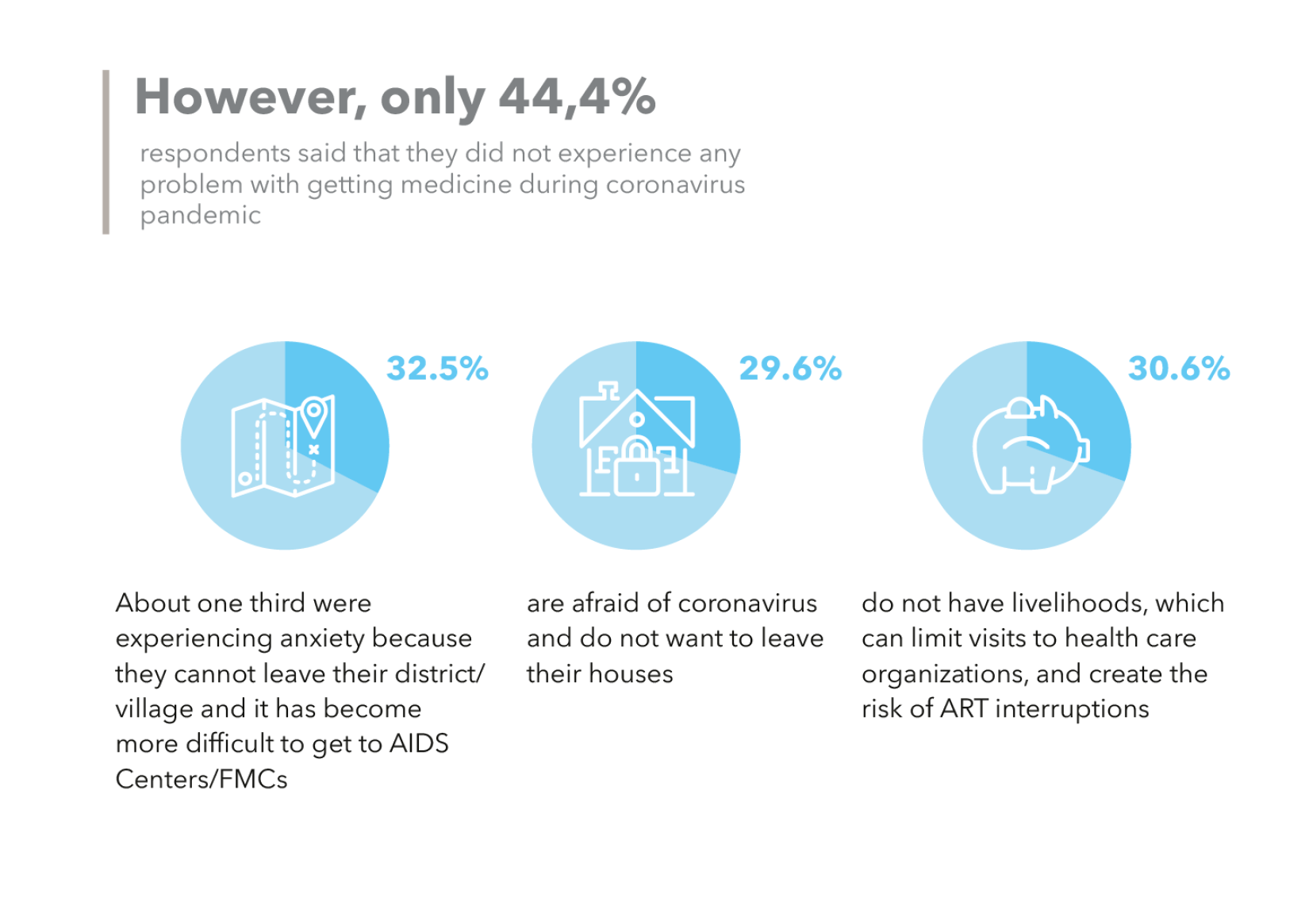
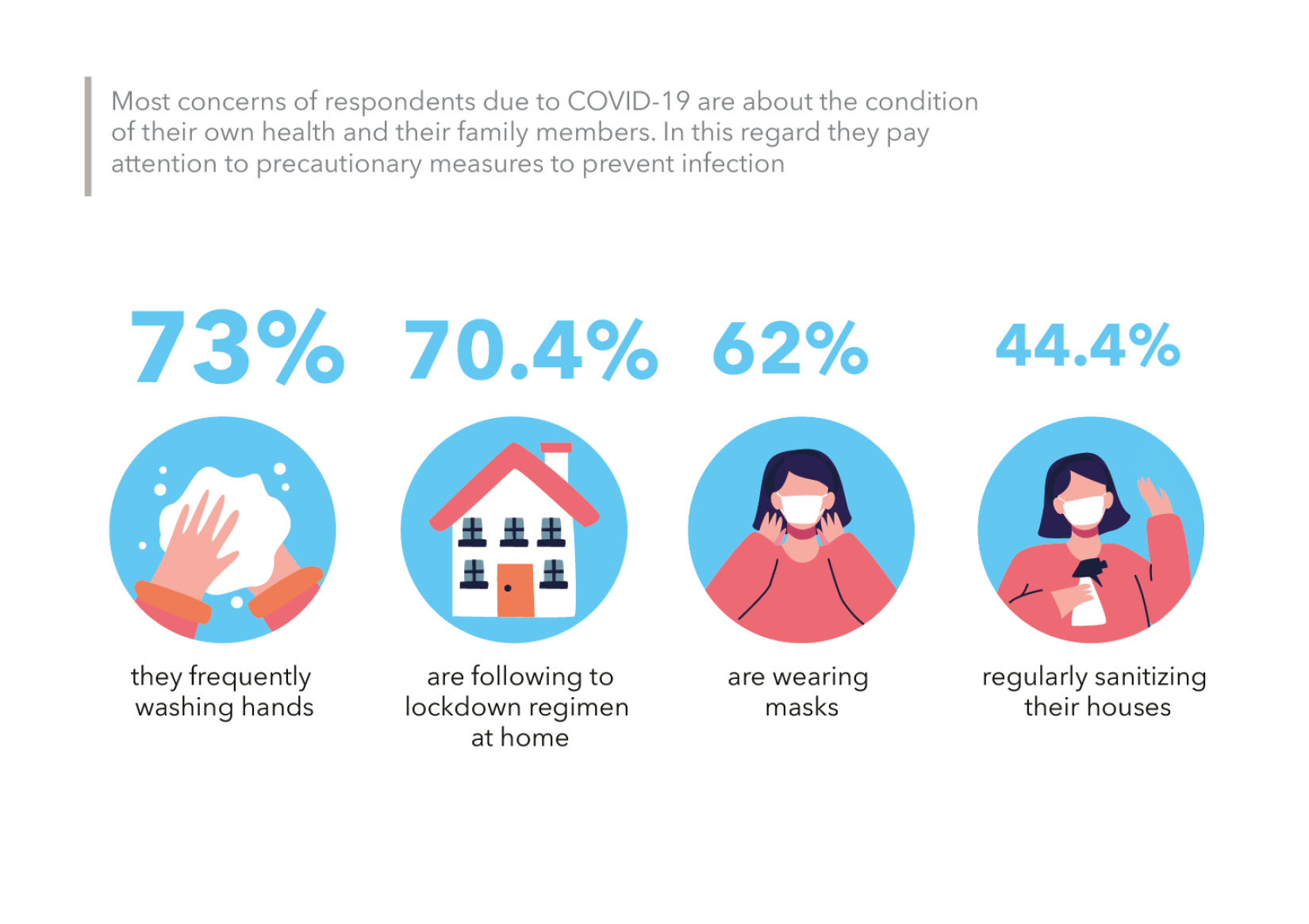
According to UNAIDS Executive Director Winnie Byanyima, “COVID-19 affects almost all countries and communities, but the global HIV epidemic is still in place. People are still having sex. People are still using drugs. During the pandemic, everyone must be given the tools necessary to ensure the safety and protection from HIV. Human rights are the cornerstone of HIV prevention and must become the cornerstone of the response to COVID-19.”
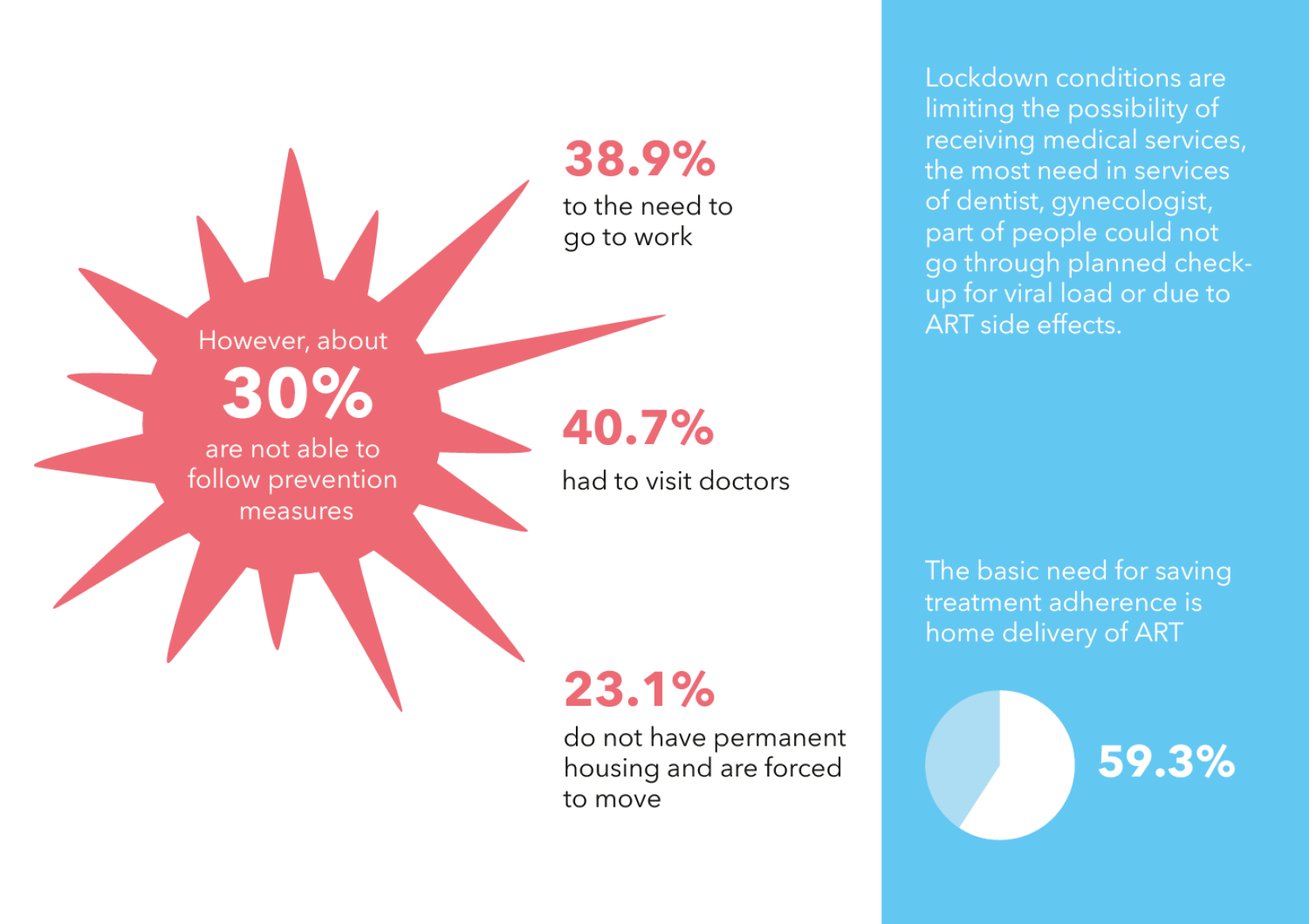
The results of the assessment are available at:
https://kyrgyzstan.un.org/en/download/10544/44957


